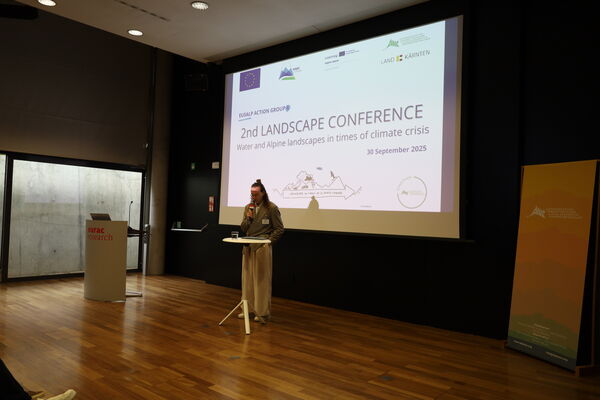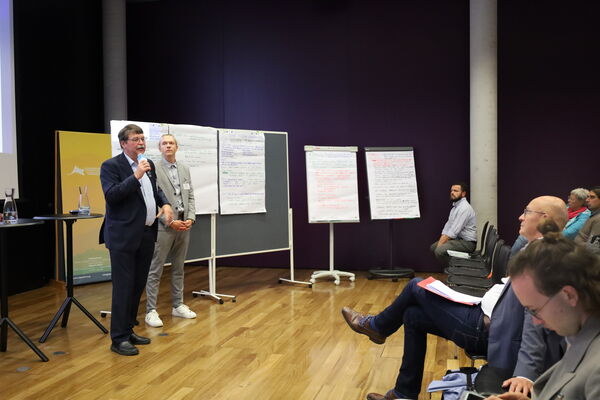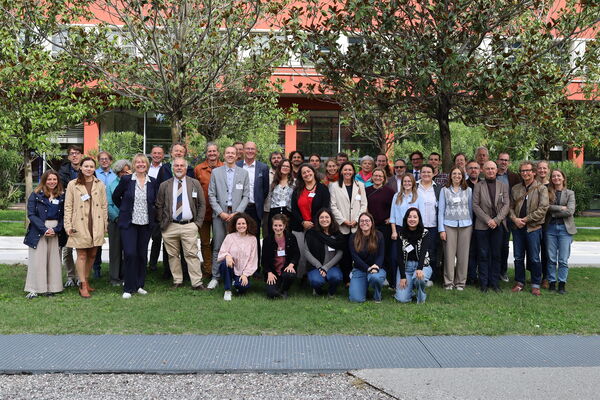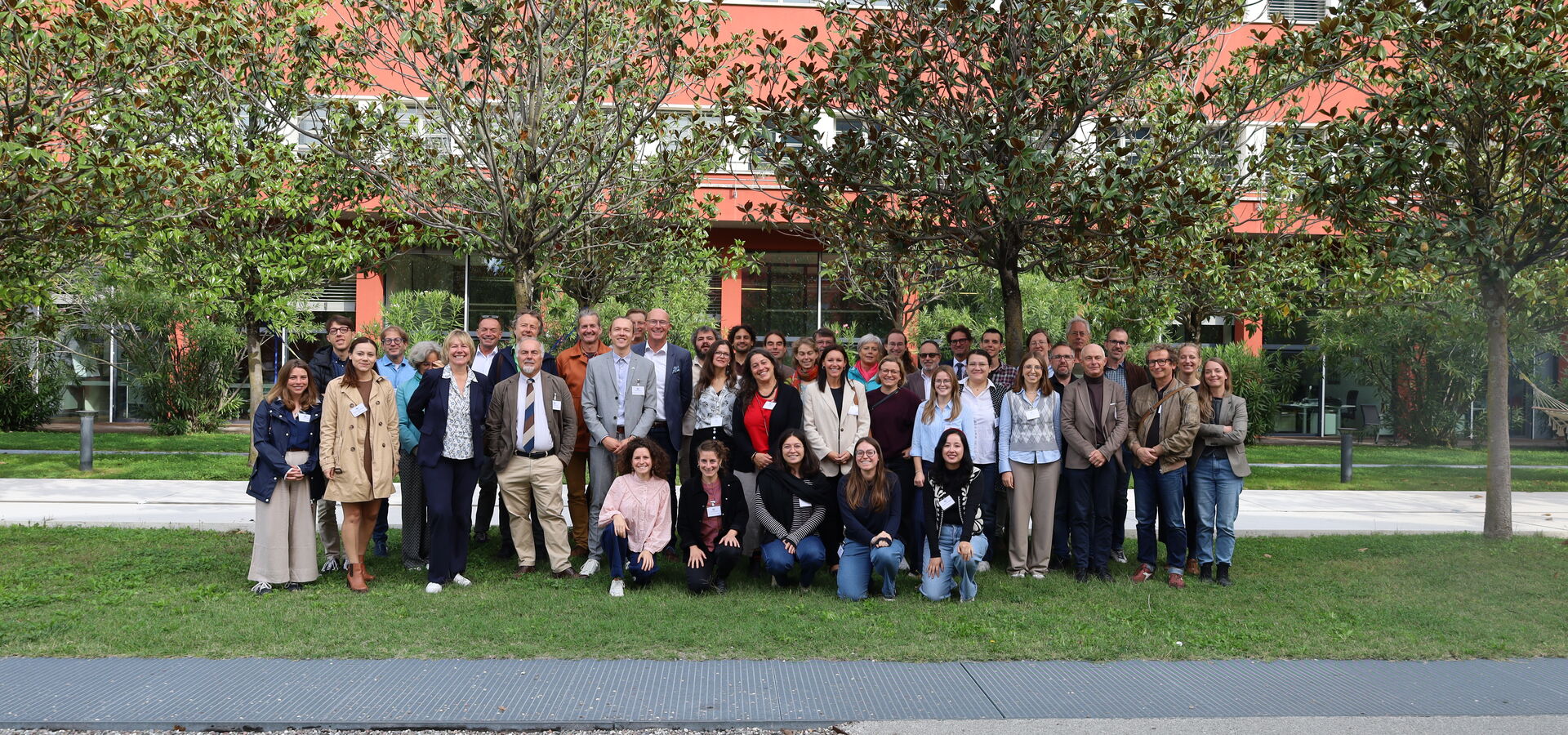Water is a distinctive part of Alpine landscapes and provides essential services such as drinking water, agricultural support, and hydroelectric power generation, as well as enabling recreational activities. Commonly referred to as ‘Europe's water towers’, the Alps provide fresh water to large downstream areas across the continent.
The importance of protecting, restoring, and sustainably managing this precious resource was the focus of the 2nd EUSALP Landscape Conference, organised by EUSALP Action Group 6 that took place at Eurac Research in Bolzano/Bozen (IT) on 30 September 2025. The conference gathered experts and stakeholders to discuss water management in the Alpine region, looking at current challenges, cross-sectoral solutions, and emerging theories aimed at safeguarding this priceless resource.
In the Alpine Convention’s 10th Report on State of the Alps, results show that ‘clean water’ as well as ‘natural landscapes’ are key assets for the quality of life in the Alps. Yet these advantages are not a given.
“This privilege comes with an enormous responsibility: to protect and preserve this precious resource and common good”, said Alenka Smerkolj, Secretary General of the Alpine Convention, in her welcome address at the Landscape Conference.
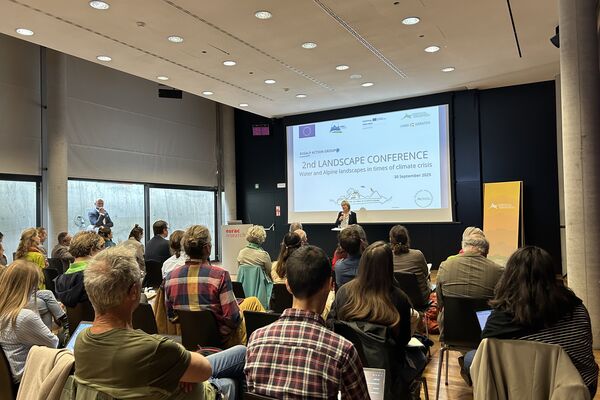
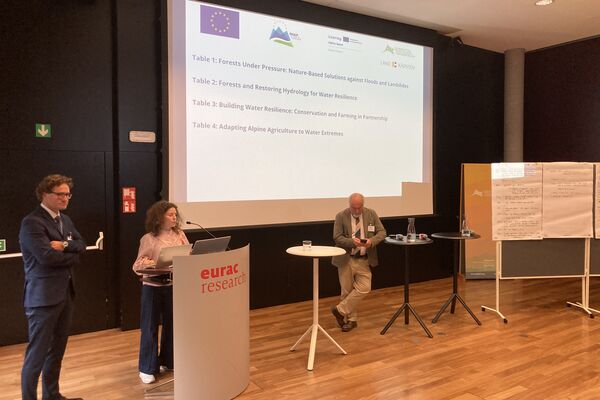
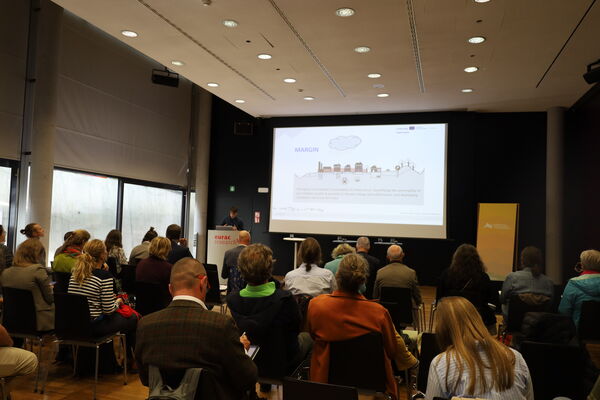
During the conference, participants were introduced to landscape design that is both resilient and culturally meaningful. They also learnt about the relevance for the Alps of the newly adopted EU Water Resilience Strategy which focuses on restoring and protecting the water cycle. Experts took part in a roundtable on water governance in the Alpine region exploring existing experiences, new concepts, and persisting gaps. The Mountain Agriculture and Mountain Forestry Working Group of the Alpine Convention as well as the EUSALP Task Force on Multifunctional Forests and Sustainable Use of Timber also co-organised a workshop examining how mountain agriculture and forestry can help shape water resilience in the Alpine macro-region to better cope with droughts, floods, and other common challenges.
The inputs and materials from the conference are now available to explore and download via Padlet.
The day after the conference, the results were discussed during the 11th meeting of Action Group 6, as well as the final steps to the end of the work plan period (2023-2025).
